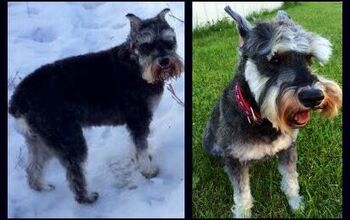Is your once-playful pup turning into a snarling toy hoarder? Do they become possessive anytime your family or other pets come near their favorite squeaky toy?Dog aggression over toys can range from mild guarding to full-blown attacks. It’s a common problem – one that can be frustrating and sometimes scary to experience. The best thing you can do for your furry friend is to tackle the issue as soon as you notice the first signs of trouble.In this guide, I’ll share tips and tricks to turn your toy-obsessed pup into a more social and relaxed companion. It’s not easy and won’t be solved overnight, but it is possible!Understanding Resource GuardingResource guarding is a common behavior that many dog parents struggle with. It happens when a dog protects a resource they see as valuable from a perceived threat. This is a deeply rooted survival instinct, ensuring they have access to the resources needed to meet their basic needs. While this describes the reason for the behavior, it can become problematic if it escalates to aggression.Common triggers for resource guarding include food, toys, bones, bedding, and specific locations within the home. Dogs may also guard people, especially “their person.”The intensity of resource guarding can vary wildly. Some dogs will exhibit mild displays of possessiveness. Mild resource guarding may involve growling, snapping, or posturing when a person or other animal approaches the resource.However, others will display severe aggression to protect what they see as theirs. This can involve aggressive biting and can pose a serious risk to others. Recognizing the signs of resource guarding and taking appropriate steps to address the issue before it escalates is crucial.Preventing and Managing Toy AggressionOnce you have identified that your dog is exhibiting toy aggression, it’s time to take proactive steps to prevent and manage this behavior. After all, we all want to create a safe and happy living environment for our dogs and the rest of the family. The earlier you address the issue, the easier it will be to modify your dog’s behavior.In the following sections, I’ll offer strategies and techniques to help you prevent and manage toy aggression that I have learned over my many years fostering rescue dogs. By understanding the underlying reasons for this behavior, managing the behavior to prevent trouble short-term, and training for long-term success, you can effectively address this common problem.Early Socialization and TrainingOne of the most effective ways to prevent resource guarding is through early socialization and training, which is excellent news if you’re bringing a young puppy home!Expose your young pup to various people, animals, and environments from a young age. This will help them develop positive associations with different triggers and situations, ultimately reducing their fear and anxiety. It will help them be more comfortable in unknown situations instead of making them feel like they have to step up and protect themselves and their treasured belongings.Positive Reinforcement TechniquesChoosing the right approach to training is almost as important as the training process itself. Positive reinforcement is a powerful training method that rewards desired behaviors and creates positive associations.When your dog displays calm and relaxed behavior around their toys, reward them with treats, praise, or playtime. In time, your dog will begin associating sharing with positive things, reducing the likelihood of aggressive behavior.Why specifically positive reinforcement? Punishing or scolding your dog for guarding their toys can escalate their anxiety, making the problem worse.Basic Obedience CommandsIn addition to focusing on training specifically related to your dog’s resource guarding behaviors, you should continue working on obedience training. Many basic commands, such as “drop it” and “leave it,” will help you manage these situations.Throughout this training, the goal is to convince your dog to trade for something better. Practice these commands regularly, starting with having your dog leave low-value items in exchange for treats. As they show they are more willing to make the trade, gradually progress to higher-value items like toys.You can effectively prevent and manage their resource guarding by teaching your dog to hand over or drop items on cue.Desensitization and CounterconditioningAn extension of your dog’s training, desensitization and counterconditioning are powerful techniques used to help your dog overcome their fear and anxiety. As these feelings can trigger resource guarding or make a situation involving resource guarding even worse, they are important to acknowledge and address.If you have a dog who can share with others in some situations and not others, you will need to find the reason why. If your dog is in a situation where they are feeling fearful, they are more likely to try to feel the need to protect their belongings. These techniques involve gradually exposing your dog to their triggers while maintaining a calm and relaxed environment. These exposures are paired with positive reinforcement, such as treats or praise, to create positive associations and teach them that the trigger does not need to be feared.For example, if you have a small dog afraid of large dogs, you may start by standing across a field from larger dogs while rewarding your dog for staying calm. Over time, you can slowly close the gap between them while praising and rewarding them for calm behavior. Eventually, your dog will be able to be close to larger dogs without feeling nervous or afraid because the emotions they feel when seeing them have been rewired – feeling excitement for the rewards they know they will receive instead of fear.When you have successfully worked through this process, your dog will no longer feel the need to guard their toys just because a larger dog comes near.Try Calming Products to Reduce Anxiety For dogs who experience heightened anxiety or stress, calming products can help them feel more relaxed temporarily while you work toward a longer-term solution. Calming treats infused with natural ingredients like chamomile or valerian root can help soothe your dog and promote relaxation. Another option is to use pheromone diffusers or sprays to mimic the calming pheromones that dogs naturally produce. These chemical signals tell the brain they are safe and secure, helping them feel calmer and relaxed in their surroundings. This can help prevent situations from escalating into something serious. For more severe cases of anxiety, I recommend consulting with your veterinarian about the potential benefits of CBD products specifically formulated for dogs.

























